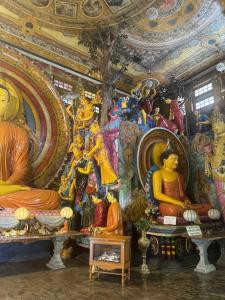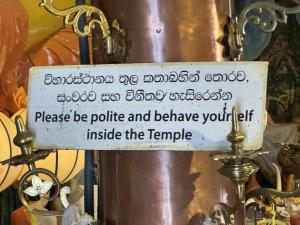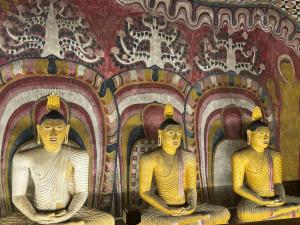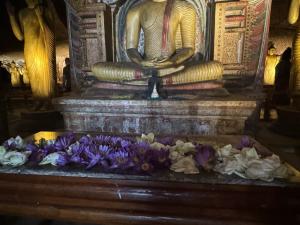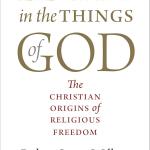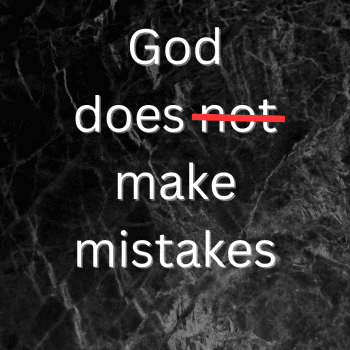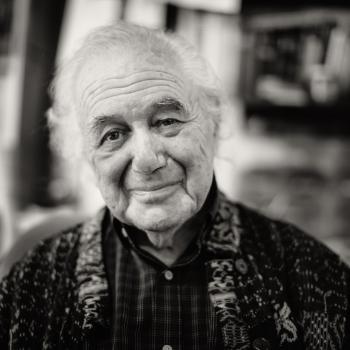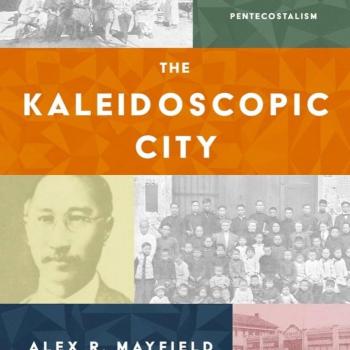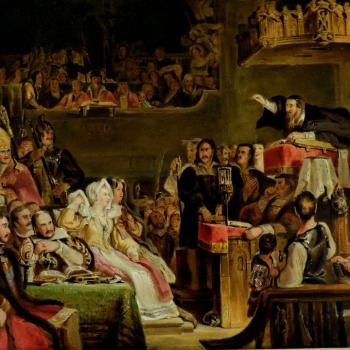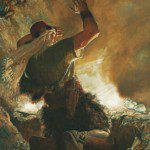I was recently on a trip where we visited many Buddhist and Hindu temples. None of our guides were Buddhist or Hindu, though they were sympathetic and generous in their explanations of what we were seeing. Most of us on the tour, however, were Protestant Christians, and we really had to do business with how challenging it is in the modern world to engage in worship. There’s a history to Protestantism which aligns with modernity and its (paradoxical) focus on ideas and emotional experience. Worship in the pre-modern world was more about mystery, beauty, ritual, and petition. Visiting temples where worship has been done in similar ways for thousands of years was a useful nudge to this devout Bible-reading Protestant to think a bit differently about how I might approach God.
As I was visiting temples in the South Asian context, I thought about my reading of the Old Testament and the ways worship in that context included sacrifice, blowing of horns, food offerings, and ritual singing. This was how people in their Southwest Asian context honored the divine, and the Israelites did some of the same sorts of worship activities as did their neighbors (as well as changing many of those elements up and NOT doing some of the same things). Just because sacrifice was used by non-Jewish people groups didn’t mean that they didn’t do that, even as some of the ways it was done and what it meant to do it were different.
Christians of all kinds in the pre-modern world also engaged in prayer and worship in ways that seemed similar to what worship looked like in the world around them. Those who had been part of the Jewish diaspora were used to Scripture-centric worship, but as Christianity spread, people chose to honor the Triune God in ways that made sense to them in their cultural context. Sometimes candles were used, sometimes art, sometimes physical prayer and collective singing or chanting. Christians made their worship traditions into their own, developing new rituals around communion and baptism—though both baptism and ritual eating pre-dated Christianity.
Missionaries throughout Christian history explained the Christian message and what meant using the language and metaphors that made sense in their new context. This meant that sometimes worship looked different in Central Americas than in Central Africa or Central Asia. And missionaries disagreed amongst themselves regarding how much of the previous way of worshipping could still be allowed without actually honoring the previous gods. If the Mexica people came to Roman Catholic churches on a holiday that used to honor an Aztec deity, were they still worshipping that god? Or were they now thanking the Triune Christian God for the harvest or change of season? Was it appropriate to simply transfer their practice to a new God or did they need to change up the worship practices entirely?
But before the Reformation, these were debates among specialized theologians. Most believers of all kinds weren’t reflecting philosophically on their devotion practices. They showed up to do the things at the time they were supposed to and worshipped with more or less fervor—petitioning God or engaging in penance or participating in the worship practices that were unique to Christianity within their culture. Katherine Cooper Wyma’s recent post on mystery plays is an excellent example of this. Those practices shaped them and helped create their collective understanding of the world, but they weren’t reflecting on them explicitly in the way that specialized theologians did. And it wasn’t expected that non-specialists would be able to articulate the philosophy and theology of what was going on.
The Protestant Reformation both reflected and helped expand the changes that we call “modernity.” The integration of the Americas into the world economy helped spur innovations, wealth, and systems that empowered individualism, intellectual organization, and greater attempts at rationality. Worship was impacted by this new way of being. Protestants rejected practices that didn’t have roots in the New Testament or which smacked to much of “superstition” or thoughtless action. The focus on personal transformation and understanding God in a rational way was a sharp turn away from mystery and ritual. It interiorized worship and eschewed any focus on externals such as lighting candles or praying set prayers or relying on the priest rather than the individual believer for part of the worship.
As a history teacher, one of the larger challenges I face is helping students understand how people in the past viewed the sacred and took spiritual powers seriously. Worship is part of this. It is difficult for modern people to allow for mystery—we want articulation and definition and to surmount the unknown. We don’t want to submit to anything—so there aren’t really spiritual authorities in our modern style of worship (which fits Protestantism really well). And while this has benefitted us in many ways, it has robbed us of the blessings of worship.
And while not all modern people are religious, it might be even more vital for secular folks to understand what taking the sacred seriously might mean. Otherwise we can condescend to people who submit to the Divine. We think of them as un-rational, unable to understand science or to engage in democratic political practices. Protestants in the United States have a long history of thinking this way about Roman Catholics whose religious rituals include pre-modern elements.
The temples we visited were highly colorful and decorated. One of them was the Dambulla Cave Temple, where people carved statues reflecting the Buddha’s life over 2000 years ago. They did so within the cave, which would have been very challenging given the dark, and they added paint and elements that reflected what they thought was most beautiful. For a person raised in the 20th century in the United States, not all that was considered beautiful in another place and time fits my own preferences for beauty, but in many ways this is the point. Many elements of the Old Testament temples or sanctuaries would not have tickled my fancy either–the pre-modern is different from other modern.
We were also confronted with the offerings worshippers brought. Fruit, flowers, or even valuables that petitioners left for the temple staff to use and redistribute were on display. My modern equivalent is an automatic deposit from my bank to my church. It suddenly felt very sterile. Being asked to think about whether we were being respectful in our clothing and required to remove our shoes forced us to realize these spaces were seen as sacred by other worshippers around us. I love how child-friendly and informal my own church is, but it does mean I’m not often aware of any sense of set-apartness (another way of thinking of “sacred”) in my weekly communal worship
Observing practices that go back to well before Christianity, let alone modernity, helped me think about the extend to which the communal elements of worship and submitting before the sacred are missing from my own spiritual life. As I was reflecting while standing in a Buddhist temple, I realized it has been a long time since I even knelt in prayer. Putting my body in a posture like kneeling is just one small way that as a Christian I harken back to the pre-modern ways of worship that humans practiced for a very long time.
I’m definitely a modern individualist– I like the literacy-centered Protestantism of my heritage. I’m also an academic—I like theorizing and rooting my worship in ideas. But I could use more Beauty, more allowing myself to submit to Mystery, more engaging in my body in practices that acknowledge I believe in God’s sacredness. I realize rituals have reality and some are more compatible with my Protestant understandings of God and Salvation and the way the world works. But some of my religious practices have more to do being modern and part of the North Atlantic cultural world than they do with actual worship. I’m going to be looking out for ways to include the pre-modern into my faith. After all, Christianity is itself ancient and global and has rich resources for me to pull from.


